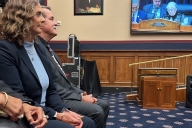You have /5 articles left.
Sign up for a free account or log in.
A shooting at an off-campus house early Sunday killed a Youngstown State University student and injured six other students, along with five people who had no tie to the university.
The party has been described in local news reports as a fraternity event. Several of the residents of the house were members of Omega Psi Phi fraternity, which is recognized by the university but does not have a fraternity house. The student who was killed, Jamail Johnson, was a member of the fraternity, according to the chapter website.
The incident at Youngstown State comes just months after a shooting at an off-campus fraternity party near Seton Hall University left one student dead and several others injured.
The Youngstown Vindicator reported that the 12 shootings followed a dispute at the party and that authorities were seeking two shooters who fired from outside the home. Ten of the injuries are being described as non-serious. Late Sunday, the Vindicator reported that two individuals -- described as men in their early 20s -- had been arrested, but not identified. The newspaper reported that Johnson, the student who was killed, had escorted one of those arrested out of the house shortly before the shooting started.
A statement from Youngstown State said that university police believe that there is no threat to the campus, but that security there has been heightened as a precaution. Cynthia E. Anderson, president of the university, went to the local hospital where shooting victims were treated to talk with students and their families. In a statement, she said that the "tragic act of violence" made Sunday "a sad day for the YSU family."
S. Daniel Carter, vice president of Security on Campus, a national group that draws attention to campus crime issues and encourages colleges to take steps to become safer, said that the incident could point to the danger of a particular kind of party: the fraternity party held off campus and not in a fraternity house.
It is quite common, he noted, for campuses with Greek systems to house only some of the fraternity and sorority members, and for groups of students who are members of the same house to then look for off-campus housing together, and to hold parties at these locations. Generally, he said, despite all the publicity about dangers associated with parties at fraternity houses, there are clear rules by colleges and by national fraternities designed to promote safety. And colleges tend to have some system for monitoring the houses and educating members about safety.
A fraternity party in an off-campus building that is not a fraternity house may well have all the dangers of a more typical fraternity party, but without any of the security measures, he said.
"This is a known challenge" for colleges and Greek systems, Carter said. Colleges should strive, he added, to educate fraternity members about safety issues in off-campus settings, even if it is more difficult than setting rules for formal fraternity parties.
Recent incidents of gun violence involving students or former students have led to renewed calls by pro-gun groups to end bans on carrying concealed weapons on campus. But Carter said that Security on Campus would oppose such moves.
"Our perspective is that the presence of alcohol and drug abuse on campuses and the party environment are not conducive to people having firearms, so we oppose any legislation that would limit institutions' ability to regulate firearms on campus," he said. "In the college setting, we do not believe that is conducive to a safe environment."






![First text message: "Yes?" Second message: "This is embarrassing to say, but law school isn't fair for us men, the women are always outperforming us at [sic]. It's obvious women are taking over the legal profession nowadays." Third text: "Who is this?"](/sites/default/files/styles/image_192_x_128/public/2024-09/Text_messages_law_2.jpg?itok=0QWP419B)

